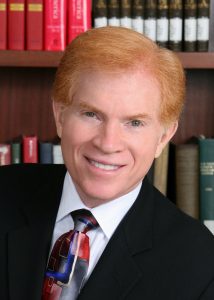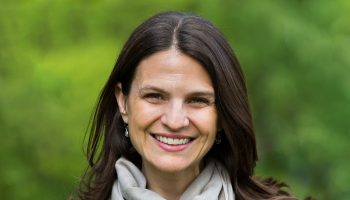MAX ZAMBRANO – STAFF WRITER

Perhaps few other people could best describe American Jewish history than Rabbi Gary Phillip Zola. As the executive director of the largest free-standing research center dedicated to American Jewish history, Zola is his own living, breathing historical document.
At 1 p.m. Wednesday, July 21 in the Amphitheater, Zola will present “American Exceptionalism versus American Jewish Exceptionalism: Actualizing Religious Freedom in U.S. History,” the final Interfaith Lecture Series of Week Four, themed “The Evolving Religious Narrative in America.”
In its 75-year history, the Jacob Rader Marcus Center of the American Jewish Archives has had two directors: Marcus himself, who stayed director until he died just short of his 100th birthday, and Zola.
The archives are housed at Hebrew Union College-Jewish Institute of Religion in Cincinnati, which Zola said is the longest continuously running rabbinical school in the United States.
“If you want to write or study or research Jewish life in America, it’s almost a certainty that you’re going to need to come to the American Jewish Archives,” Zola said.
Beyond this certainty, students at the college, which include those seeking a doctorate in American Jewish history, are required to use the archives as part of their curriculum. In addition, the archives serve the public and house researchers from around the world, he said.
As executive director, Zola said he ensures he promotes the archives, encourages people to donate materials and helps raise money.
Uniquely, Zola is also the college’s Edward M. Ackerman Family Distinguished Professor of the American Jewish Experience and Reform Jewish History. Often, libraries or archives are led by librarians or administrators, but Zola is a historian and professor.
And he loves it.
“Many people, when they think of the word ‘archives,’ they conjure up in their minds this image of a dingy closet with stacks and stacks of boring paper, and it doesn’t sound very interesting or exciting to many people,” he said. “For those of us who love history and who love learning about the past, the archives literally make you feel as though you’re in a candy store.”
Not a day goes by where Zola doesn’t find a new piece of history, he said. Even if the archives have housed a document for years, it may not be used during that period until it is needed to shine light on a topic.
“There’s hardly a day that goes by that you don’t find amazing material,” he said. “Sometimes, it’s earth-shattering in that it really is transformational in its importance.
“Other times, it’s little nuggets of fascinating material that are extraordinary.”
One of the most significant documents at the archives, Zola said, is the Riegner Telegram, which he said is accepted by scholars to be the first communications from Europe to the U.S. that Hitler’s Nazi regime was killing Jews.
Sent on Aug. 8, 1942, this was the first message notifying Americans of actual executions, despite the fact that Americans at the time knew of the ongoing oppression and brutalization of Jews in Europe, Zola said.
“When you look at that, and you see the original and look at that, it’s just overwhelming,” he said.
Zola will use several historical documents in his lecture to help illustrate his lecture’s purpose, which he said is to highlight one of the American Jewish community’s most important contributions to the U.S.
The community, Zola said, has played a significant role in making the country follow through on statements and promises made in America’s founding documents.
“American Jews have been uniquely positioned, though we’re a tiny minority, to have been and continue to be leading advocates for the expansion of civil rights and of liberty, equality and pursuit of happiness in America,” he said.
For anyone who visits the archives, even those who don’t read or study history, it is always an overwhelming experience to see preserved, important documents, Zola said. Perhaps, however, nobody appreciates it more than the living, breathing historical document himself.
“I love studying the past,” he said. “I love these documents.”




